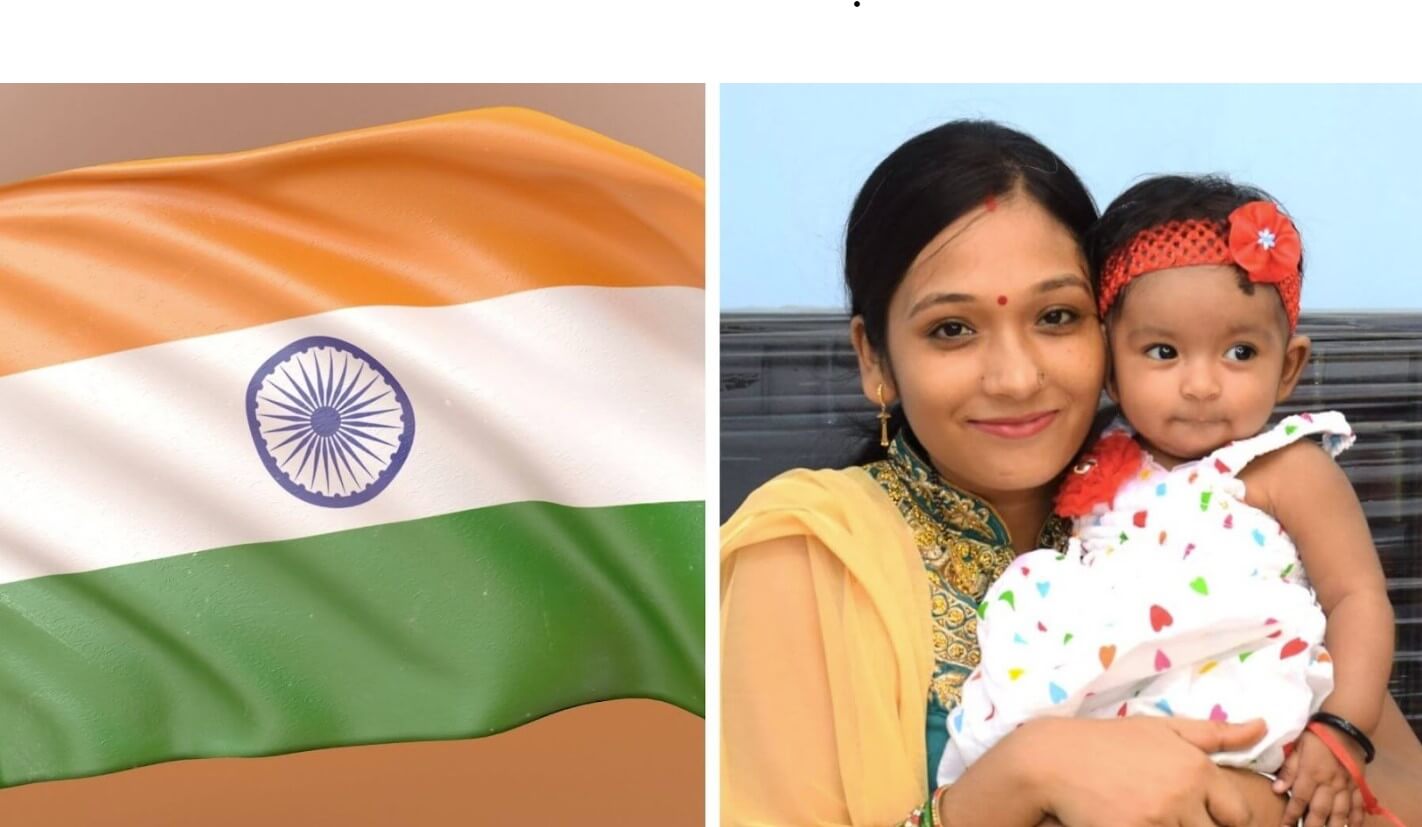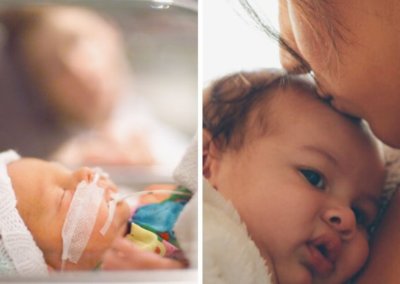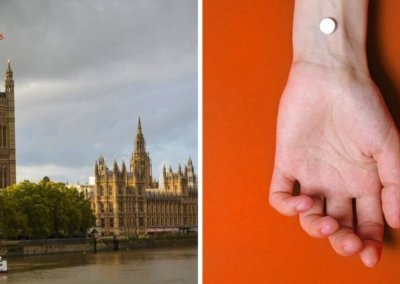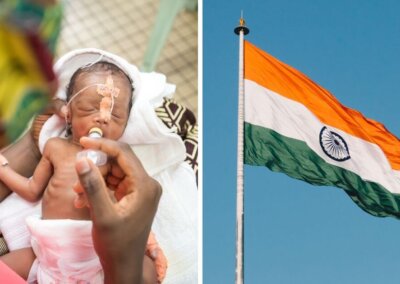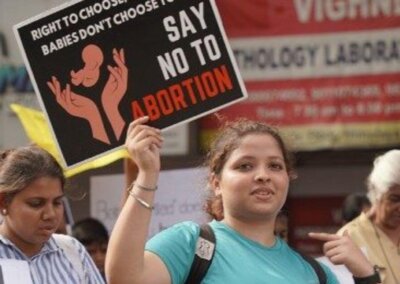A woman suffering from COVID-19 in Birpara, India, was forced to deliver her baby prematurely via Cesarean section. Both remained in hospital with COVID-19 but thankfully recovered after seven days.
Amid the second wave of the coronavirus in India, 25-year-old Junika Toppo, a resident of Jay Birpara Village, was admitted to hospital on 25 May after experiencing labour pains.
Doctors at the hospital told reporters that they had to perform a Caesarian section due to some complications. As Toppo had also tested positive for COVID-19, the baby was immediately admitted to the Sick Neonatal Care Unit (SNCU).
A hospital source said: “The child was also underweight and suffering from birth asphyxia, which is listed as the 10th leading cause of neonatal death in the United States”.
“We did not lose hope”
The doctor in charge of the Alipurduar district hospital’s SNCU Dr Sunil Panna, said: “The child was a premature baby and under-weight (2 kg 100 grams) on one hand, while on the other, she was tested positive for COVID-19. She was born with the virus in her. When we found she was suffering from birth asphyxia, we faced a major challenge, but we did not lose hope and did everything we could”.
“The oxygen saturation level of the child was only 70 percent and we had to keep her in ventilation and stimulation. However, she got back to normal within a mere 48 hours. After that, the baby started taking breast milk, and it was then that we knew it was a great victory”.
The mother and the newborn were discharged from the hospital yesterday after both of them tested negative for COVID-19.
The hospital’s Superintendent, Dr Chinmay Barman, said, “It is indeed great news amid the second wave of COVID-19 and assumptions about the so-called third wave, which is said to affect children more. This case will surely boost people’s confidence as they fight the virus, and more so, the parents who are now fearing for their children, given the talk of the third wave”.
Junika Toppo said: “My baby is doing good now. She is feeding well. She is our first baby, and we are very grateful to the doctors at the district hospital”.
Babies born before and shortly after the abortion limit
Babies are continuing to be born before or shortly after the abortion limit of 24 weeks’ gestation in India and going on to live and even thrive at greater rates than before. Studies suggest that the majority of premature babies grow up to be healthy adults without any major health problems.
A study published in the Journal of the American Medical Association in October 2019, followed 2.56 million babies born in Sweden between 1973 and 1997, around six percent of whom were born prematurely.
Researchers compared the health data of the premature babies to those that had been born at full term. They found that 55% of premature babies had no serious chronic, physical, or mental health issues by early adulthood. This is compared to 63% for babies born at full term.
Additionally, with each passing decade, the odds of survival for a premature baby to adulthood have improved from about 91% of babies born in the 1970s to about 96% of those born in the 1990s.
However, the study also found that the earlier babies are born, the harder it becomes to avoid complications.
Just 22% of extremely premature babies – those born between 22 to 27 weeks’ gestation – were alive without any health problems by the end of the study.
The survival rate for extremely premature babies has doubled over the past decade, prompting new guidance allowing doctors to try to save babies born as early as 22 weeks into a pregnancy.
Sex-selective abortion in India
A paper published this April by a leading medical journal, estimated that 13.5 million or more baby girls were aborted in sex-selective abortions in India between 1987 and 2016.
While India outlawed sex-selective abortion in 1994, it has remained a common practice and it is responsible for approximately fifty per cent of the world’s “missing female births”.
Researchers also admitted that they may have underestimated the “true extent” of missing female births by applying the conservative natural ratio of 950 girls per 1,000 boys. When they tested a ratio of 975 girls per 1000 boys, they calculated over 22 million missing girls at birth.
India is thought to have 63 million fewer women since sex-determination tests took off in the 1970s and research suggests India will have an estimated 6.8 million fewer female births by 2030 because of the popularity of sex-selective abortions.
Potential explanations for this include cultural attitudes that prioritise boys’ education, due to the perception that they are the main breadwinners, and the (outlawed) practice of dowries for girls, which in turn brand women as socio-economic burdens.
A spokesperson for Right To Life UK, Catherine Robinson, said: “It is wonderful to see that the doctors at this hospital were able to ensure that Junika and her baby girl were able to triumph over their health complications, even as they were dealing with India’s difficult second wave of COVID-19. As medicine continues to advance, so do the survival rates for premature babies such as Junika’s”.
“Yet it is tragic to see that in such a self-professed age of progress, abortion based on the sex of the child in the womb still happens in India, despite it being outlawed, a practice that disproportionately impacts baby girls. We must take action to foster a global climate in which all babies are valued for their inherent dignity as living human beings and not one in which they are unfairly treated as a burden”.


